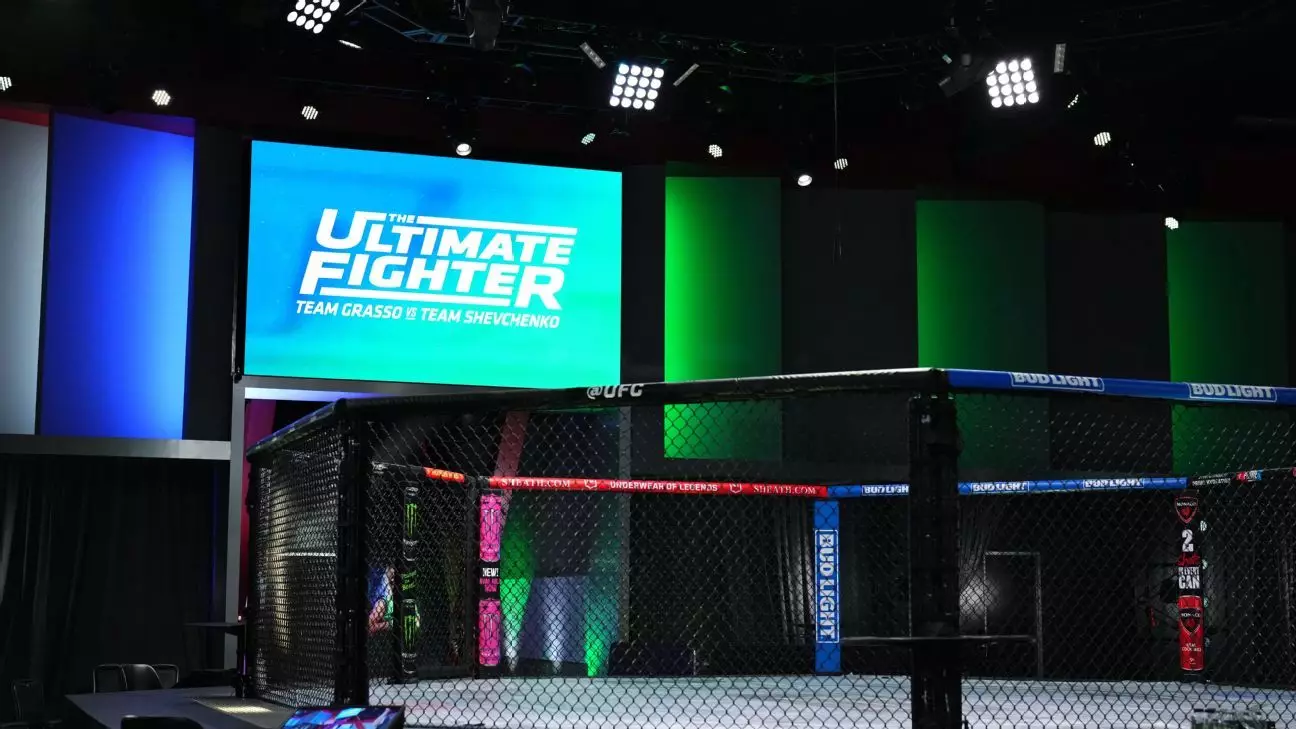As “The Ultimate Fighter” embarks on its 33rd season this month, it ushers in an intriguing new narrative that may redefine the series’ legacy. This season diverges from convention by eschewing active fighters in coaching roles in favor of revered UFC Hall of Famers. The selection of former two-division champion Daniel Cormier and renowned trash-talker Chael Sonnen as coaches is a testament to the evolution of the show. The combination of seasoned experience and diverse personalities promises to add a novel layer to the competition, something fans may find both refreshing and engaging.
Instead of the youthful vigor that often fuels competitive spirit on the show, fans will witness the wisdom and strategic insight of seasoned veterans who have been in the corporate trenches. This transition from active athletes to retired analysts not only infuses the show with a sense of nostalgia but also emphasizes the priorities of training and mentorship — essential ingredients for aspiring fighters clamoring for their chance to ascend the ranks within the UFC. With Cormier’s dual championship accolades and Sonnen’s notorious controversy, fans can anticipate a dynamic relationship, marked by both camaraderie and rivalry.
The Legacy of Talent Development
For over a decade, “The Ultimate Fighter” has acted as a springboard for budding talent, continuously providing the UFC with formidable prospects and championship-caliber athletes. Legends like Forrest Griffin, Rashad Evans, and Kamaru Usman emerged from this reality television incubator, etching their names in the annals of MMA history. Each season has peeled back the curtain on the intense realities of mixed martial arts, showcasing the grind, grit, and raw emotion that accompany a fighter’s journey to the octagon.
This season’s unique format raises pertinent questions about the future of talent development within the UFC’s competitive ecosystem. Will the absence of current fighters make the coaching strategies less relatable to the contestants? Or will the wealth of experience from coaching icons enhance the learning experience for aspiring fighters? While the traditional elements of rivalry may take a backseat in this iteration—given the retirement status of the coaches—the intricate layers of mentorship may thrive, paving the way for a new kind of narrative.
Welterweight and Flyweight: A Showcase of Emerging Stars
The 33rd season, featuring a focus on welterweight and men’s flyweight divisions, reflects the UFC’s continued commitment to spotlighting diverse weight classes and emerging talents. This strategic choice to amplify multiple divisions is an empowering statement towards inclusivity within the sport. The array of fighters entering the competition this season also reaffirms the sport’s global appeal. Athletes from regions like Brazil, India, and South Africa encapsulate a rich tapestry of international representation, heralding diverse fighting styles and influences.
Unlike past seasons that may have leaned heavily on established fighters, this newest casting comprises young aspirants eager to carve their names into UFC folklore. The thirst for recognition among this new generation is palpable. With promising records like 10-0 fighters from Kazakhstan and emerging stars from Ireland, one can imagine the vibrancy each participant brings to the competition. The stakes are high, and the intensity is palpable, as each contestant vies for not just a UFC contract but the chance to become the next household name in mixed martial arts.
Setting the Stage for Dramatic Encounters
Season 33 of “The Ultimate Fighter” will air on May 27, marking a pivotal moment in MMA history. Fans can expect the unfiltered atmosphere typical of TUF, albeit with a refined focus on mentorship rather than rivalry. The mental and physical battles ahead promise to captivate an audience that craves drama. The interactions between Cormier and Sonnen—two polarizing figures known for their sharp wit and competitive nature—will be a focal point for viewers, likely sparking conversations far beyond the octagon.
By steering clear of the typical narrative arcs surrounding upcoming bouts, this iteration of the series could redefine what it means to coach in the sport, prioritizing skills over spectacle. The maturity and understanding exuded by both Cormier and Sonnen have the potential to elevate the fighters’ experiences, providing them with invaluable lessons entrenched in years of competition and analysis.
In essence, this evolving format of “The Ultimate Fighter” is not merely a nostalgic glance at the past; it represents a bold leap forward, demonstrating that the essence of mentorship and personal development can take precedence over traditional rivalry dynamics. As fans prepare to witness this refreshing revival, one thing is clear: the legacy of this beloved series continues to evolve, inviting a new generation of fighters into the spotlight.


Leave a Reply